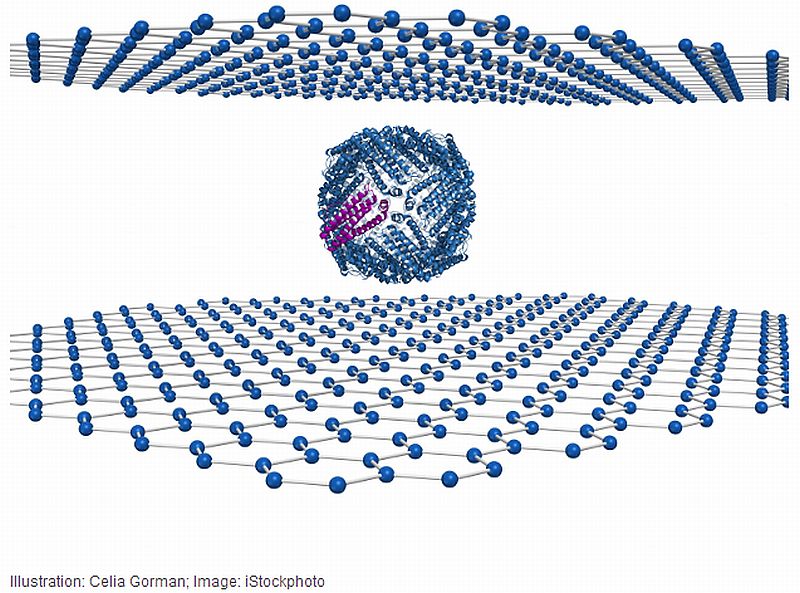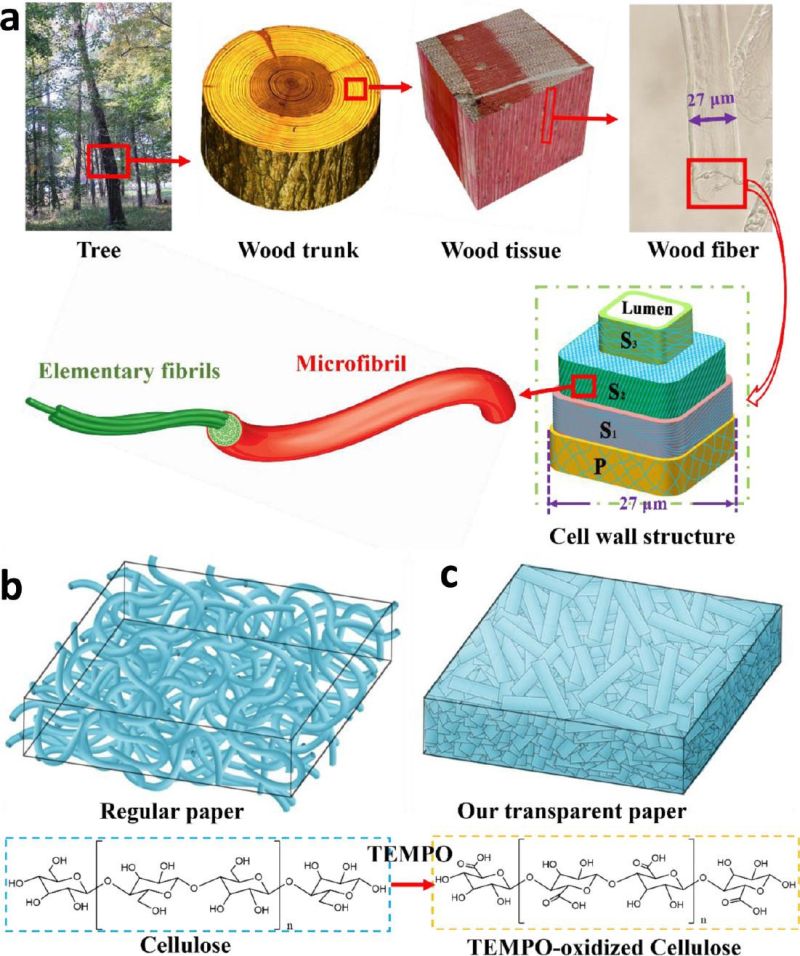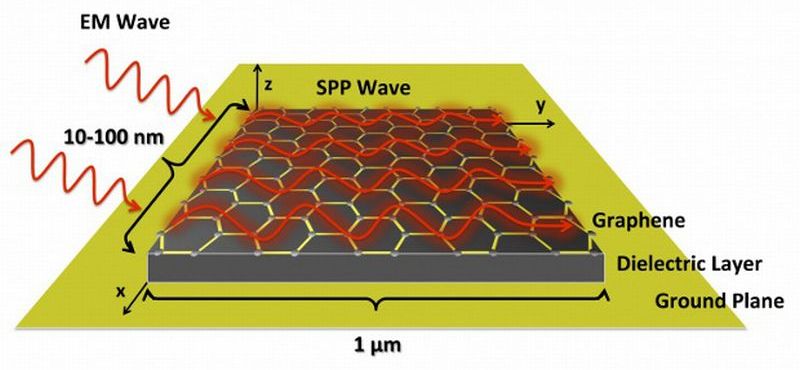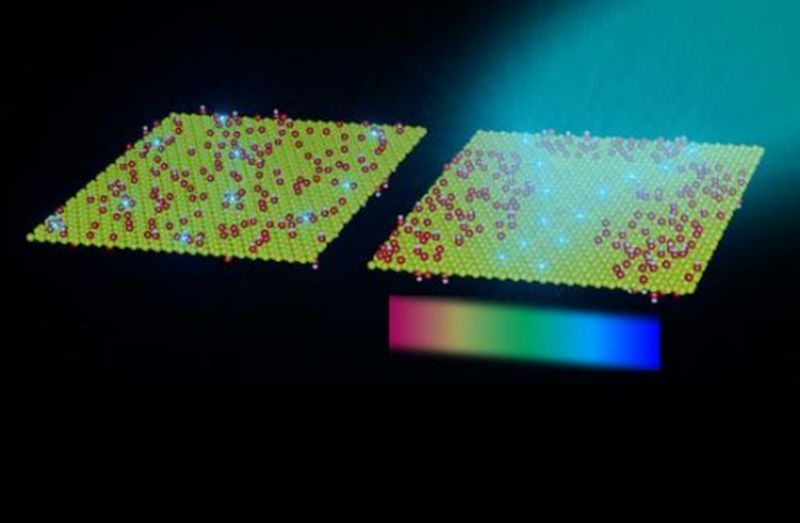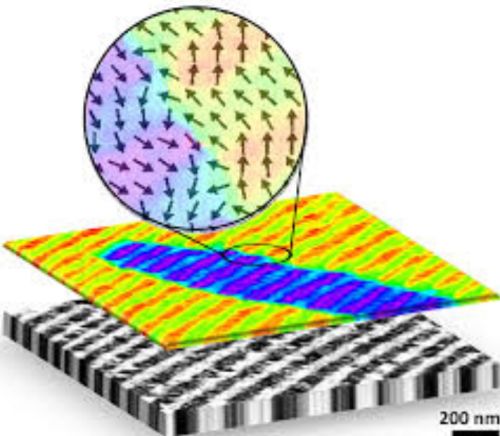Power Laces Shoes is the future of footwear, do not mix it with Loafers people (like one of my friend did), I am far too way to give any fashion statement :l The famous Tinker Hatfield, designer from the Nike announced that the power laces from Back to the Future II would hit the real world by 2015. He is the man behind the famous Air Jordan series and other fashionable shoes. At the moment, its far to predict whether the coming of the power laces would be in Nike…
Read MoreCategory: Futuretech Tonics
Will Nanofabrication Recall 3D TV Without Glasses?
Jayan Thomas, an assistant professor at UCF’s NanoScience Technology Center is at the verge of showing a red flag to the conventional 3D television, where one needs to wear the glasses to have a feel of 3D effect. The researcher has already received a grant of US $400 000 to work towards fabricating the materials that would be able to create a 3D image. As per him, he wants to create a TV, which would be something like table, and the images will resonate on top of it and people…
Read MoreGraphene Morphs From Hydrophobic To Hydrophilic
Graphene is taking the role of Zeus in the fraternity of materials. Its astounding properties come to the fore every time researchers try to do something new with it. Interestingly this time, the material has shown its ‘romantic inclination’ towards water. Its hydrophobic nature allows graphene to repel water however, narrow capillaries fabricated from the material reverses the nature of the same material, turning it into hydrophilic. Rapid permeation occurs when the layer of water molecule is of same dimension as that of graphene itself, that is, one atomic thickness.
Read MoreNative Apps versus HTML5 Based Apps: The War Goes On
It’s been a decade now, the World Wide Web Consortium (W3C) is working towards converging on standards of coding as per which, single chunk of code is to be displayed across connected devices be it app or webpage. Amongst others, automotive industry is looking forward to the new coding standards, called the HTML5. With this, they envision reduction in the cost and at the same time, opening up of new apps for a connected vehicle. Complete specifications of HTML5 was published in Dec 2012, however, the actual set of standards…
Read MoreGraphene Sandwich Results In Higher Resolution Images Of Biomolecules
Biomolecule when sandwiched between sheets of graphene results in a high resolution of atomic level images of the molecule, a rare research put forth by the researchers at the University of Illinois, Chicago. The molecule called ferritin, an iron-storage protein, was imaged in the research. Prior to this method, imaging of any Biomolecule was taken of course with an electron microscope along with a liquid stage container that is placed between thick windows of silicon nitrate to protect the sample from vacuum. Graphene’s superior transparency becomes instrumental in providing an…
Read MoreNew Laser Printed Bone Like Material To Be Both Light And Strong
Humans are curious by nature and this curiosity has led them to morph from Stone Age to Bronze Era. As the centuries progressed, humans too evolved intellectually and hence quenched their thirst for more by reaching solutions technologically. As we can see in the current century, technology is touching its zenith researchers are busy manipulating substances at atomic level so that human race can witness totally new and evolutionary materials. Until now, it was difficult to find or to create bone like material artificially but a team of researchers headed…
Read MoreHigh Haze Paper Might Replace The Plastic Substrates Of Solar Cells
Paper coming from wood fibers would now be replacing plastic substrates that are employed in the manufacturing solar cells. Researchers from University of Maryland, the South China University of Technology, and the University of Nebraska-Lincoln have proposed this evolutionary step towards future technology. As per the researchers, solar cells gives maximum output when the materials involve have high optical transparency and high optical haze. Diffusion of light is of high quality when the optical transparency is high. And high optical haze helps in increasing the scattering of light which further…
Read MoreVigo, The Technology’s Answer To Energy Drinks
Across the globe, every single day there are road accidents occurring due to drowsy driving. Sleepiness is the major contributor causing fatal road accidents and is generally overlooked by the drivers. Similar to alcohol, drowsiness reduces reflex time, alertness and hampers our decision- making ability. To combat this problem a kickstarter program has come up with a device known as Vigo. The sole aim of the device is to wake you up whenever you are low on energy and show sign of drowsiness and low alertness. In short, Vigo gauges…
Read MoreComputer Noises Now A Gateway To RSA Key Extraction
Since the inception of RSA public-key encryption in 1977, it has acted as a sentinel guarding online privacy and verified authenticity across the globe while using computers, gadgets and web browsers. But now it seems, like any other product cycle, this one too has reached the platform and soon enough it might require a revamp. A team of three researchers in Israel has claimed their ability to crack 4096-bit RSA encryption keys by listening to internal computer components that produces shrilling noises. Researchers said that they studied the noises produced…
Read MoreBeginning Of A New Communication Paradigm For Graphene
Graphene, I am sure, is one of the most sought after materials for researchers across the world today. Just two months back we shed light on how graphene will be replacing silicon in the chips creating revolution in the field of semiconductors and then we talked about the new annealing treatment that might take graphene to the next level. Still curious for more, researchers at the Georgia Institute of Technology claim that they have devised a mechanism through which they can extent the capability of nanoscale antennas fabricated from graphene…
Read MoreNew Annealing Treatment Might Take Graphene To The Next Level
Graphene wafers are the subject of interest for the researchers at MIT and the University of California at Berkeley these days. The 2-dimensional, crystaline allotrope of carbon has huge potential across applications like solar cells, thermoelectric devices and water filtration to name a few but the expensive treatment is becoming a major huddle in its advancement. Therefore, to bring about the material’s versatility the team has put forth a solution, which they claim is inexpensive relatively. Pure graphene does not qualify for any electronic devices but the scenario changes with…
Read MoreNanogenerator Fabricated By Virus Template
Nature has an innate ability of fabricating organic structures at the nano scale, self-cleaning mechanism or water repellence in lotus effect best describes this tendency. Dexterously the leaves of lotus flower repel water. The complex micro and nanoscopic architecture of the surface is responsible for creating physical atmosphere that assist in disengaging water molecules to the leaves. Scientists today are working towards replicating the mechanism by using nature as a template. However, imitating the natural process is not that easy especially when working on the nanoscale, often it requires toxic…
Read MoreGravity: The Next Genesis Of Electricity
Gravity, the defining force that attracts a body towards the centre of the earth will now play a crucial role for the generation of electricity. The Mexican entrepreneurs claim that they have developed a system which is proficient enough to exploit the vehicular flow. Their astonishing device has the potential to capture the force generated by the moving vehicles which triggers the generation of electric current with as much strength so as to light up an entire household. An English patent already exists on an idea similar to this, where…
Read MoreStanene Could be The New Building Block For Circuit Structures
Topological insulators by default mean heavy and electron-rich elements however, recent research at sub atomic levels are changing this age-old fact. Researchers have been fascinated with this evolved class of material. According to Wikipedia, A topological insulator is a material with time reversal symmetry and trivial topological order, that behaves as an insulator in its interior but whose surface contains conducting states, meaning that electrons can only move along the surface of the material.
Read MoreMagneto Electric Conversion In BFO Opens Door To Smart Devices
Among the other multiferroics, bismuth ferrite (BFO) has gained an increased interest from research scholars in science and technology. The credit goes to its enhanced magnetization and suppressed current leakage ability. In May this year, three researchers Dovron Rahmedov, Laurent Bellaiche and Rahmedov postulated the multi-functionality of bismuth ferrite (BFO) in terms of electrical polarization, which means, the compound can be magnetized by running an electric current through it.
Read More




